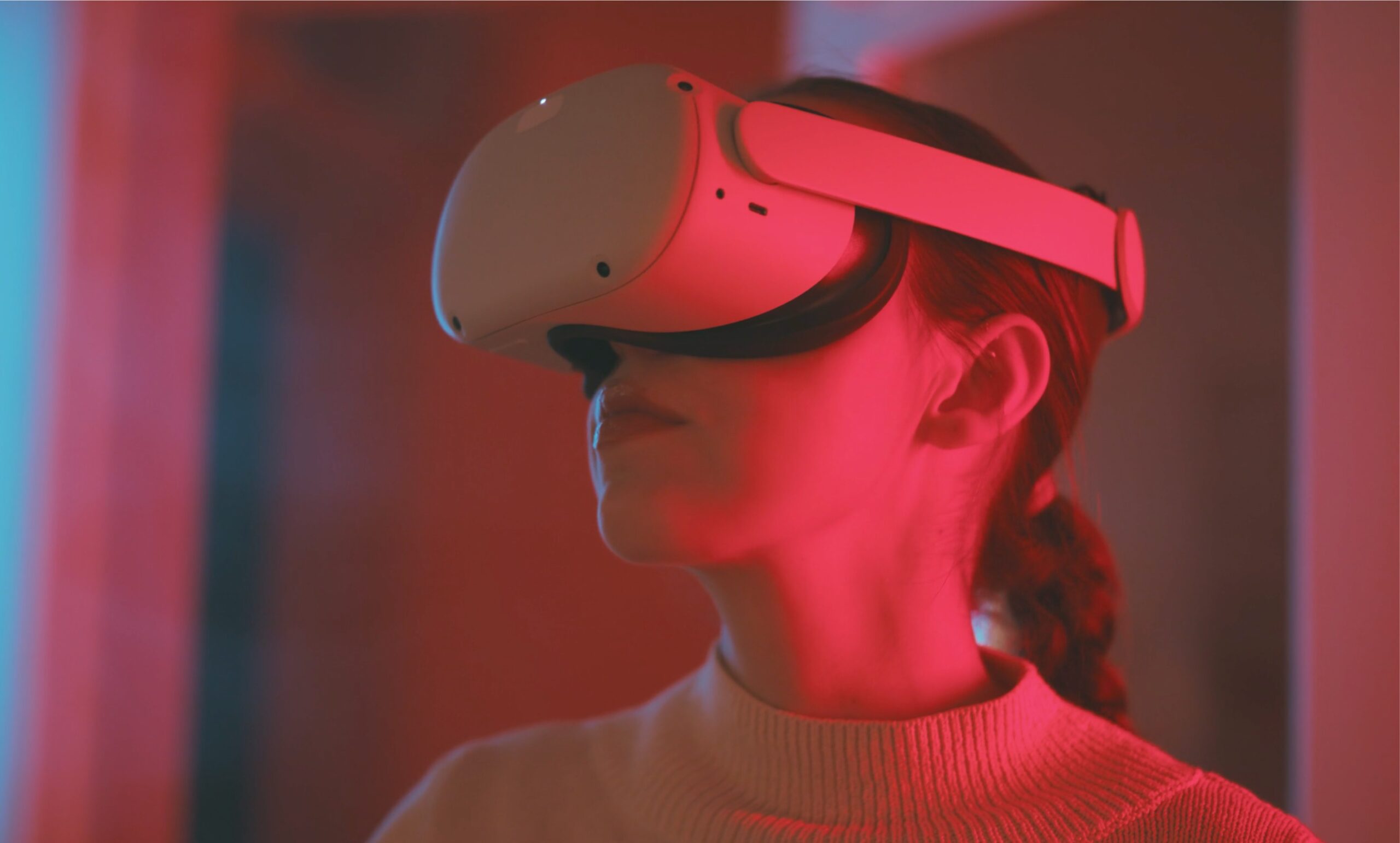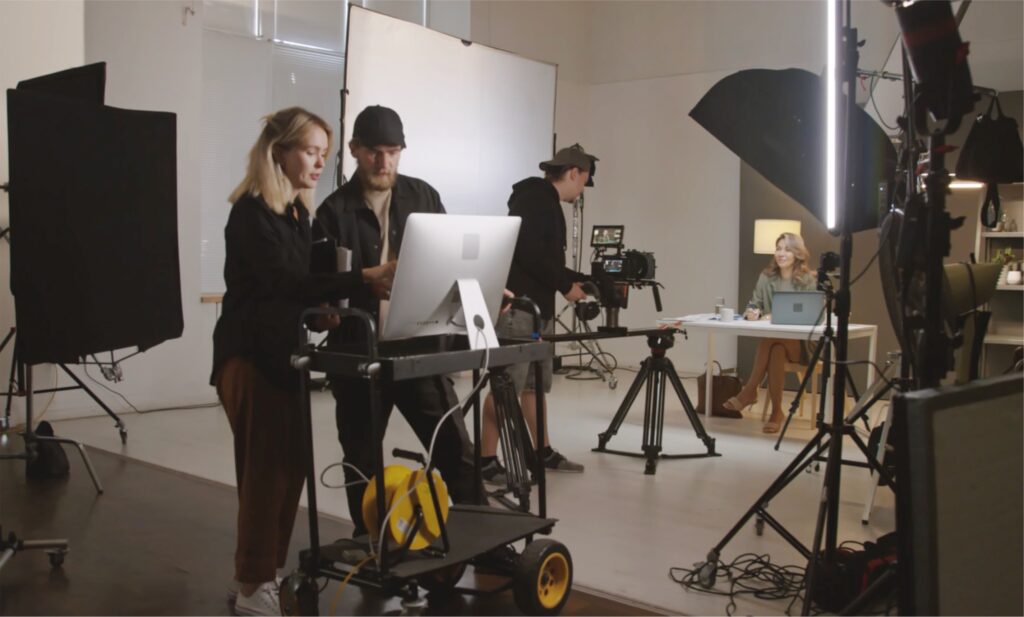Virtual reality (VR) is an emerging trend in digital marketing that offers interactive and immersive experiences for customers. Utilising VR in marketing campaigns allows businesses to differentiate themselves from the competition and capture the attention of customers. Compared to traditional marketing campaigns, VR helps build trust with customers and leaves a lasting memory. Incorporating VR into digital marketing strategies is crucial for staying ahead in today’s competitive landscape.
There are various ways to incorporate VR in digital marketing. Creating 360º videos, offering virtual try-on experiences, and providing virtual tours are just a few examples. These techniques allow businesses to showcase their products in innovative ways while engaging customers on a deeper level. By personalising the customer experience, VR enables brands to forge stronger connections with their target audience.
The hospitality and travel industry, in particular, can greatly benefit from VR videos. By allowing potential customers to virtually experience destinations and hotels, businesses can make a compelling case for bookings. VR videos can showcase the best features of properties through virtual tours and create immersive storytelling experiences. This not only enhances the customer experience but also targets international customers who may not have the opportunity to visit the location in person.
When creating VR videos, it’s important to focus on creating engaging experiences rather than getting lost in specific details. The use of VR videos is part of the larger concept of the metaverse, which enhances the booking process and delivers value in the travel industry. By utilising VR videos on accessible platforms, such as social media sites, businesses can extend their reach and target international customers effectively.
In conclusion, VR is a powerful marketing tool that allows businesses to maximise their marketing efforts. By offering interactive and immersive experiences, VR videos engage customers, build trust, and leave a lasting memory. Incorporating VR into marketing strategies should be a priority in 2020 to stay ahead of the competition and captivate customers in unique ways.
Key Takeaways:
- Virtual reality (VR) is an emerging trend in digital marketing, offering interactive and immersive experiences for customers.
- Using VR in marketing campaigns helps businesses stand out, build trust, and leave a lasting memory compared to traditional campaigns.
- Incorporating VR into digital marketing includes creating 360º videos, virtual try-on experiences, and virtual tours.
- The hospitality and travel industry can benefit from VR videos by allowing customers to virtually experience destinations and hotels.
- Creating engaging VR experiences should focus on immersive storytelling rather than specific details.
- Accessible platforms like social media sites offer a wide reach for VR videos, enabling businesses to target international customers.
Incorporating Virtual Reality into Your Marketing Campaigns
There are several effective ways to incorporate virtual reality (VR) into your digital marketing campaigns. VR offers a unique and immersive experience for customers, allowing them to engage with your brand in a whole new way. One popular method is creating 360º videos, which give viewers a 360-degree perspective and make them feel like they are part of the action. This can be particularly impactful for industries such as real estate and tourism, where customers can virtually explore properties and destinations.
Another way to utilise VR in your marketing is by offering virtual try-on experiences. This is especially beneficial for fashion and beauty brands, as it allows customers to virtually try on clothing, accessories, or makeup before making a purchase. By providing this interactive experience, you are giving customers a taste of what it would be like to own your products, increasing the likelihood of conversion.
Virtual tours are also an effective way to incorporate VR into your marketing campaigns. Whether you are showcasing a hotel, a museum, or an event venue, virtual tours allow potential customers to explore the space and get a sense of the atmosphere without physically being there. This helps to build trust and confidence in your brand, ultimately leading to more bookings or sales.
By incorporating VR into your marketing campaigns, you are not only staying ahead of the competition but also delivering a memorable and engaging experience to your customers. Whether it’s through 360º videos, virtual try-on experiences, or virtual tours, VR has the power to transform your digital marketing efforts and drive better results in 2020 and beyond.
Virtual Reality Videos in the Hospitality and Travel Industry
Virtual reality (VR) videos are particularly effective in the hospitality and travel industry, offering potential customers the opportunity to experience destinations and hotels before making bookings. These immersive videos enable viewers to explore properties and destinations in a way that traditional marketing materials cannot match.
One way VR videos are utilised in the industry is through virtual tours. By providing virtual tours of hotels and resorts, businesses can showcase their facilities, rooms, and amenities in a realistic and engaging manner. Customers can virtually walk through the property, getting a sense of the layout and ambiance, which helps them make more informed decisions when choosing a place to stay.
Another application of VR videos in the hospitality and travel industry is in creating immersive storytelling experiences. Through compelling narratives and captivating visuals, VR videos transport viewers into the heart of a destination or a unique travel experience. This not only builds excitement and anticipation but also allows potential customers to envision themselves in that setting, increasing the likelihood of them booking a trip.
Virtual Reality Videos Enhancing Marketing Strategies
VR videos offer a powerful tool for marketers in the hospitality and travel industry to engage with customers on a deeper level. By incorporating VR into their marketing strategies, businesses can create memorable experiences that leave a lasting impression. Through virtual tours and immersive storytelling, they can inspire wanderlust, build trust, and connect with customers in a more personal and meaningful way.
By utilising accessible platforms such as social media sites, businesses can also reach a wider audience with their VR videos. With the ability to target international customers, VR videos can attract travelers from around the world, enticing them to explore new destinations and book their travel experiences.
In summary, VR videos provide a unique opportunity for the hospitality and travel industry to showcase their properties and destinations in an immersive and engaging way. By incorporating virtual tours and immersive storytelling experiences, businesses can create a powerful marketing tool that captivates potential customers and sets them apart from the competition. With the growing popularity of VR, marketers should consider including VR videos in their marketing strategies to maximise their impact and drive bookings.
| Benefits of VR Videos in Hospitality and Travel Industry: |
|---|
| Enhances customer experience by providing virtual tours of properties |
| Creates immersive storytelling experiences to inspire travel |
| Builds trust and fosters a personal connection with potential customers |
| Targets international customers through accessible platforms |
Creating Engaging VR Experiences
When creating virtual reality (VR) videos, it is crucial to prioritise creating engaging experiences rather than focusing solely on specific details. VR offers a unique opportunity to immerse customers in a virtual world, and to truly capture their attention, the experience must be captivating from start to finish. By designing experiences that evoke emotions, create a sense of exploration, and allow for interaction, marketers can ensure that their VR videos leave a lasting impression on viewers.
One way to create engaging VR experiences is to incorporate gamification elements. By adding interactive elements, challenges, or rewards, marketers can transform passive viewers into active participants. For example, in a VR video showcasing a travel destination, viewers can be prompted to find hidden gems or solve puzzles, making the experience more interactive and enjoyable.
Additionally, storytelling is a powerful tool in creating engaging VR experiences. By crafting narratives that captivate audiences and draw them into a compelling storyline, marketers can enhance the emotional impact of their VR videos. Whether it’s telling the story of a brand, a product, or an experience, a well-crafted narrative can make VR videos more memorable and impactful.
| Key Points: | |
|---|---|
| 1. Prioritise engagement over details | When creating VR videos, focus on creating immersive and captivating experiences rather than getting lost in specific details. |
| 2. Incorporate gamification elements | Add interactive elements, challenges, or rewards to transform passive viewers into active participants. |
| 3. Tell a compelling story | Create narratives that captivate audiences and draw them into a powerful and emotional storyline. |
The Role of VR in the Metaverse
It is important to recognise that VR videos are part of a larger concept called the metaverse. The metaverse refers to a collective virtual shared space where users can interact with a computer-generated environment and other users in real-time. By embracing VR in marketing strategies, businesses can tap into the potential of the metaverse and offer unique experiences to their audience.
In the travel industry, for example, VR videos can transport viewers to different destinations, allowing them to explore and experience different cultures without leaving their homes. This not only enhances the booking process but also adds value to the overall customer experience. By harnessing the power of VR within the metaverse, businesses can expand their reach and deliver immersive experiences that leave a lasting impact on potential customers.
“By embracing VR in marketing strategies, businesses can tap into the potential of the metaverse and offer unique experiences to their audience.”
As marketers continue to explore the possibilities of VR, it is essential to keep in mind that the focus should always be on creating engaging experiences. By prioritising immersion, interactivity, and storytelling, businesses can harness the power of VR to captivate their audience, differentiate themselves from the competition, and maximise their marketing efforts.
Summarising the key points discussed, creating engaging VR experiences involves prioritising engagement over details, incorporating gamification elements, and telling compelling stories. By embracing VR within the metaverse, businesses can offer unique experiences and expand their reach. As VR continues to evolve, it presents a powerful marketing tool that can help businesses stand out and leave a lasting impression on their customers in the travel industry and beyond.
Accessible Platforms for VR Videos
Virtual reality (VR) videos can be accessed and shared across various platforms, including popular social media sites, providing businesses with the opportunity to reach and engage international customers. With the widespread use of social media, platforms such as Facebook, Instagram, YouTube, and Snapchat have become powerful tools for showcasing VR content.
Social media sites offer a wide range of features that enhance the impact of VR videos. For example, businesses can create immersive 360º videos that allow viewers to explore a virtual environment by simply tilting or swiping their screens. These platforms also support 3D and virtual try-on experiences, enabling customers to interact with products before making a purchase.
The reach and accessibility of social media sites make them ideal for targeting international customers. Through the use of VR videos, businesses can transcend geographical boundaries and connect with audiences worldwide. This opens up new opportunities for companies in the travel and hospitality industry, as they can showcase destination highlights and hotel amenities, providing a virtual experience that attracts and captivates potential customers.
Maximising the Impact
| Platform | Advantages |
|---|---|
| Large user base and advanced ad targeting options | |
| Visual platform suited for showcasing VR videos and engaging with followers | |
| YouTube | Popular video-sharing platform with high engagement rates |
| Snapchat | Interactive and immersive features, perfect for sharing short VR experiences |
When utilising social media platforms for VR videos, it is important to optimise the content for each specific platform. This includes creating attention-grabbing thumbnail images, crafting compelling captions, and utilising relevant hashtags to increase visibility. Building a strong online presence and engaging with followers through comments, likes, and shares can further enhance the impact of VR videos on social media.
By leveraging accessible platforms and harnessing the power of VR videos, businesses can create unique and immersive experiences that resonate with their target audience. The ability to reach international customers through social media sites offers tremendous potential for growth and exposure. In today’s digital age, VR videos have become an essential component of an effective marketing strategy, enabling businesses to stand out and leave a lasting impression.
The Power of VR in Marketing
Virtual reality (VR) is a powerful marketing tool that businesses should consider incorporating into their overall marketing strategies to maximise their marketing efforts. With its ability to provide interactive and immersive experiences, VR offers a unique way to engage customers and leave a lasting memory compared to traditional marketing campaigns.
There are various ways to leverage VR in digital marketing, such as creating 360º videos, offering virtual try-on experiences, and providing virtual tours. These techniques allow businesses to showcase their products and services in a more interactive and personalised manner, capturing the attention and interest of potential customers. By incorporating VR into their 2020 marketing plans, businesses can stay ahead of the competition and deliver exceptional experiences to their target audience.
In the hospitality and travel industry, VR videos prove to be particularly effective. They enable potential customers to experience destinations and hotels before making bookings, allowing them to visualise and explore different properties. VR videos can be used to create virtual tours, showcasing the best features of properties and creating immersive storytelling experiences. This not only helps businesses in the industry to stand out but also enhances the customer’s decision-making process and builds trust.
Accessibility is crucial when using VR videos for marketing purposes. These videos can be shared on various platforms, including social media sites, which allows businesses to reach a wider audience and target international customers. By utilising these accessible platforms, businesses can amplify the impact of their VR videos and maximise their marketing efforts.
| Benefits of VR in Marketing |
|---|
| Engages customers in unique and immersive experiences |
| Builds trust and leaves a lasting memory |
| Offers interactive and personalised marketing approaches |
| Aids in showcasing products and services effectively |
| Enhances the customer’s decision-making process |
| Targets international customers through accessible platforms |
| Helps businesses stay ahead of the competition |
VR is revolutionising the way businesses approach marketing. By incorporating VR into their strategies, businesses can create memorable experiences, reach a wider audience, and ultimately maximise their marketing efforts.
Conclusion
In conclusion, virtual reality (VR) video offers a unique and immersive way to engage customers in marketing campaigns, and it has the potential to transform marketing strategies by providing memorable and interactive experiences. As a growing trend in digital marketing, VR allows businesses to stand out from the competition and captivate the attention of customers. Unlike traditional marketing campaigns, VR helps build trust and creates a lasting memory in the minds of consumers.
There are various ways to incorporate VR into digital marketing, such as creating captivating 360º videos, offering virtual try-on experiences, and providing virtual tours. By utilising VR, businesses can showcase their products in a dynamic and interactive manner, providing customers with a personalised experience that resonates with them.
For the hospitality and travel industry, VR videos are particularly effective in enticing potential customers. By allowing them to virtually experience destinations and hotels before making bookings, businesses can create a sense of trust and excitement. Through virtual tours and immersive storytelling experiences, marketers can highlight the unique features and amenities of properties, creating a compelling narrative that drives bookings.
Furthermore, VR videos can be easily accessed on various platforms, including social media sites, making it possible to reach international customers. The ability to target a global audience offers businesses the opportunity to expand their reach and grow their customer base. It is important, however, to focus on creating engaging experiences rather than getting lost in specific details. By embracing the concept of the metaverse and leveraging VR videos, marketers can enhance the booking process and deliver exceptional value in the travel industry.
In summary, VR is a powerful marketing tool that can help businesses maximise their marketing efforts. Through its immersive nature, VR video provides a unique and memorable way to engage customers. By incorporating VR into marketing campaigns and utilising its potential to create personalised and interactive experiences, businesses can leave a lasting impression on customers and transform their marketing strategies for the better.
FAQ
How can virtual reality (VR) be used in digital marketing?
VR can be incorporated into digital marketing campaigns through methods such as creating 360º videos, offering virtual try-on experiences, and providing virtual tours. These techniques allow businesses to showcase products, engage customers, and personalise their experiences.
What industries can benefit from VR videos in marketing?
The hospitality and travel industry, in particular, can benefit from VR videos. They allow potential customers to experience destinations and hotels before making bookings, highlighting the best features of properties, and creating immersive storytelling experiences.
Where can VR videos be accessed?
VR videos can be accessed on various platforms, including social media sites. This accessibility allows marketers to target international customers and expand their reach.
What should marketers focus on when creating VR videos?
It is important for marketers to focus on creating engaging experiences rather than getting lost in specific details. The goal should be to immerse customers in the virtual world and leave a lasting impression.
How can VR maximise marketing efforts?
VR is a powerful marketing tool that helps businesses stand out from the competition, build trust with customers, and leave a lasting memory. By incorporating VR into their marketing strategies, businesses can maximise their marketing efforts and create impactful experiences for their target audience.





